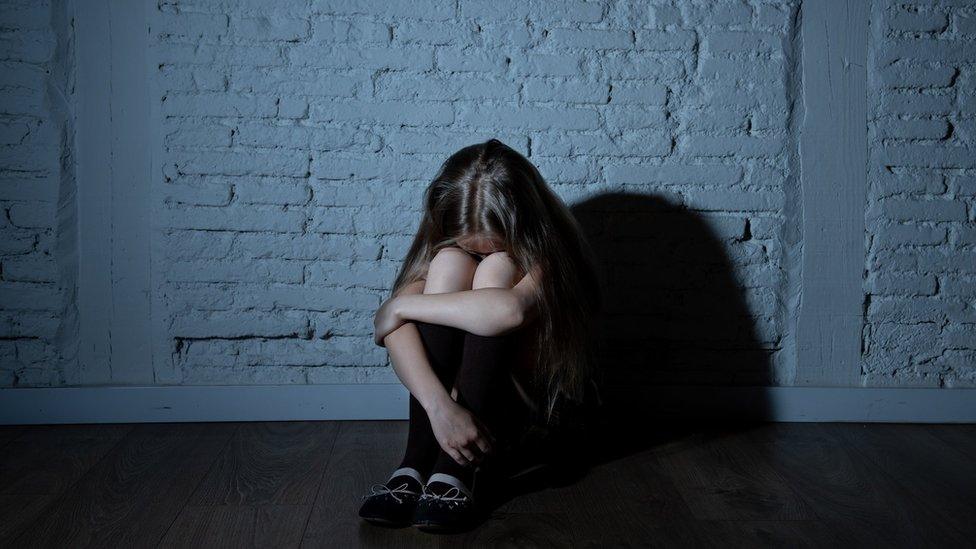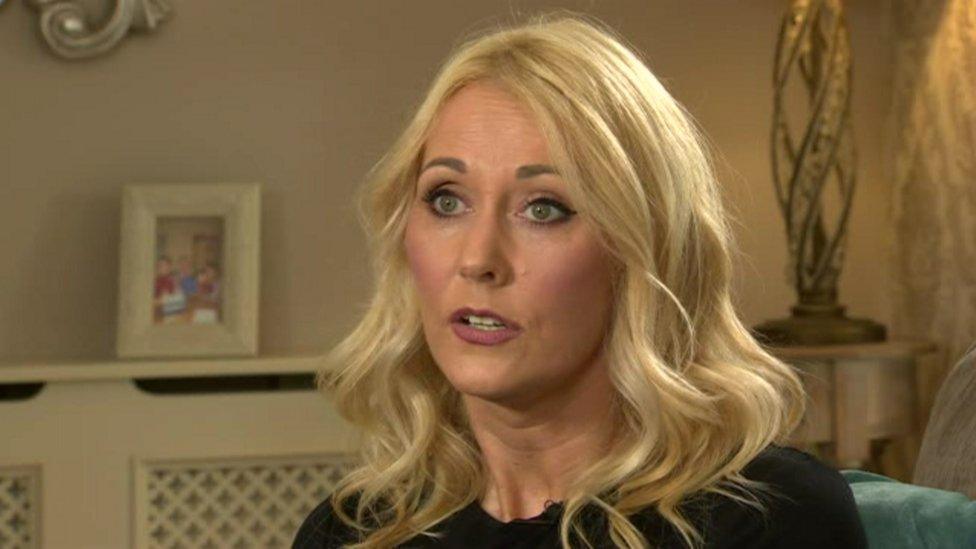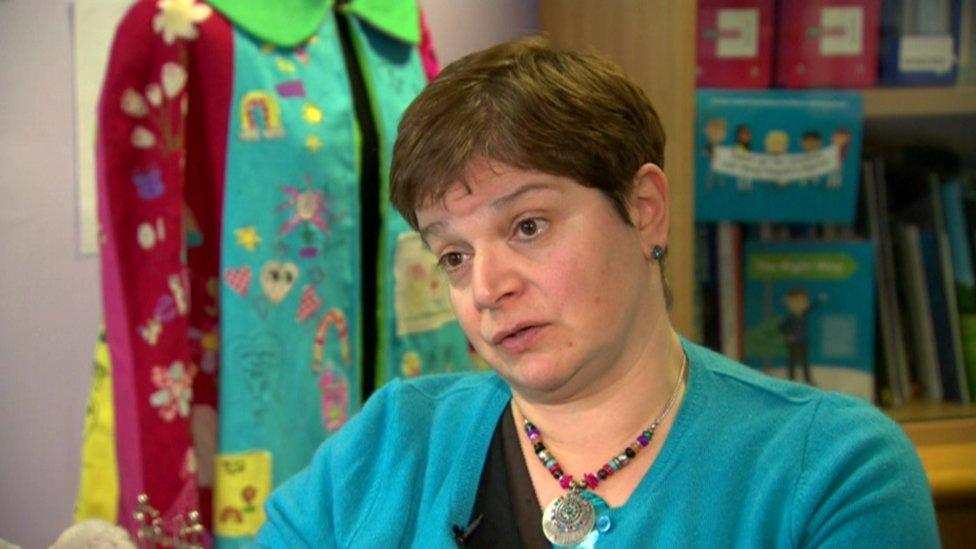Pupil restraint and seclusion laws 'must be made tougher'
- Published

Tougher laws on restraint and conclusion are needed, according to the children's commissioner
The Northern Ireland children's commissioner has called for tougher laws on when a child can be physically restrained at school.
Koulla Yiasouma said there was no legal requirement for schools to record or report uses of restraint and seclusion.
The Department of Education (DE) said all incidents involving the use of reasonable force must be recorded by schools.
However the recording of such incidents is not a legal obligation.
BBC News NI spoke to one mother who alleged her son was strapped into a chair at his special school without her knowledge.
Deirdre Shakespeare said she only found out how much her then five-year old son Harry was being restrained when she saw a photo diary of his first year at his special school.
Harry has no mobility issues, but is autistic and non-verbal.

Deirdre Shakespeare noticed a change in her son's behaviour
In health trust documents seen by BBC News NI, he is described as "a placid non-violent child."
Mrs Shakespeare said she noticed a change in Harry's behaviour at home within a few months of him starting Knockavoe special school in Strabane, County Tyrone, in 2016.
"He would have had panic attacks, night terrors - the night terrors were quite bad where we had to catch him off the bed," she said.
"He would have cowered, you know, lowered himself, cowered if you had have approached him."
'Mechanically restrained'
Mrs Shakespeare said Harry was "a loving, kind little boy" who liked to be "on the go."
She and her husband Rodney gave permission for him to be put in a chair at mealtimes in school, but they have claimed the photos in his school diary show he was restrained much more than that.
They also alleged the school did not inform them of how much Harry was being restrained.
"He was mechanically restrained into a chair for learning, for feeding and for playing and he was also wheeled round the school in this chair because Harry had behaviour challenges such as dropping to the ground during transition," she said.
"I don't think any parent would allow their child to be strapped into a chair for learning, for playing or to take away their independence, because this is what school was about.
"I just found it quite upsetting every time I think of what they did to him and they hid it from us."
Mr and Mrs Shakespeare eventually withdrew Harry from Knockavoe.
'Highest priority'
The PSNI investigated and a file has been prepared and submitted to the Public Prosecution Service (PPS).
Because of that, the school, through the Education Authority (EA), said it was unable to comment.
An EA spokesperson said: "The health and well-being of children and young people in our schools is our highest priority.
"This was referred to the PSNI and as such it would be inappropriate to comment further."
Harry's case has also been cited in Parliament by the former care minister Norman Lamb, who called for new guidance in England on the use of restrictive practices in schools.
Ms Shakespeare has also called for the laws on child restraint in Northern Ireland to be toughened.
According to the Department of Education: "All incidents involving the use of reasonable force must be recorded by schools."
"However, the recording of such incidents is not a legal obligation."
Northern Ireland's Children's Commissioner, Koulla Yiasouma, said that was not good enough.

Koulla Yiasouma wants changes to the practice of restraint
In a submission to the UN Committee against Torture she said the government should ensure that restraint was used only when a child posed an imminent threat of injury to themselves or others and only when all other means of control had been exhausted.
"Schools should be required to record and report uses of restraint or seclusion," she said.
"There is no requirement on schools to record and/or report uses of restraint and seclusion and so there is little data to allow an analysis of the frequency and impact of these practices."
Department of Education guidance on the use of reasonable force said it should only be used to restrain or control a pupil "as a last resort, only when other behaviour management strategies have failed and when the pupil, other pupils, members of staff or property are at risk or when the pupil is seriously compromising good order and discipline."
But Ms Yiasouma said the law around restraint was not clear.
"The law needs to be clear about reporting and I think the guidance coming out from the department should not be optional or advisory," she said.
"We need tougher and clearer structures and processes in Northern Ireland."